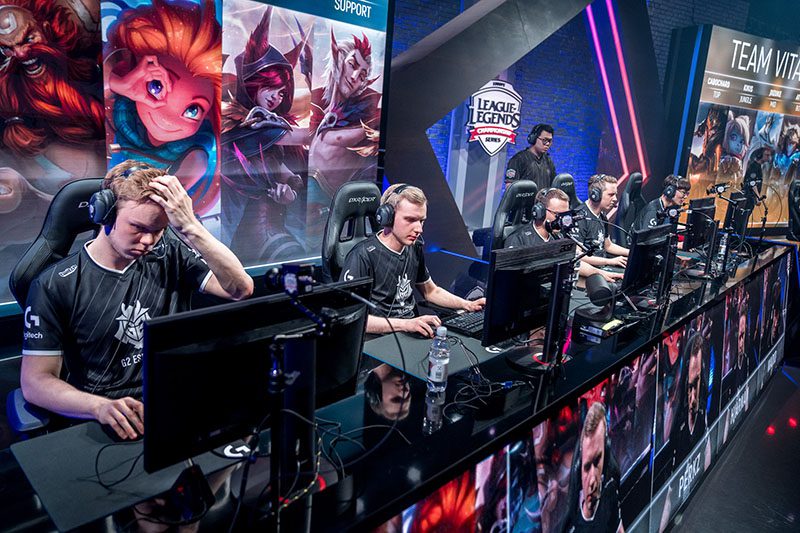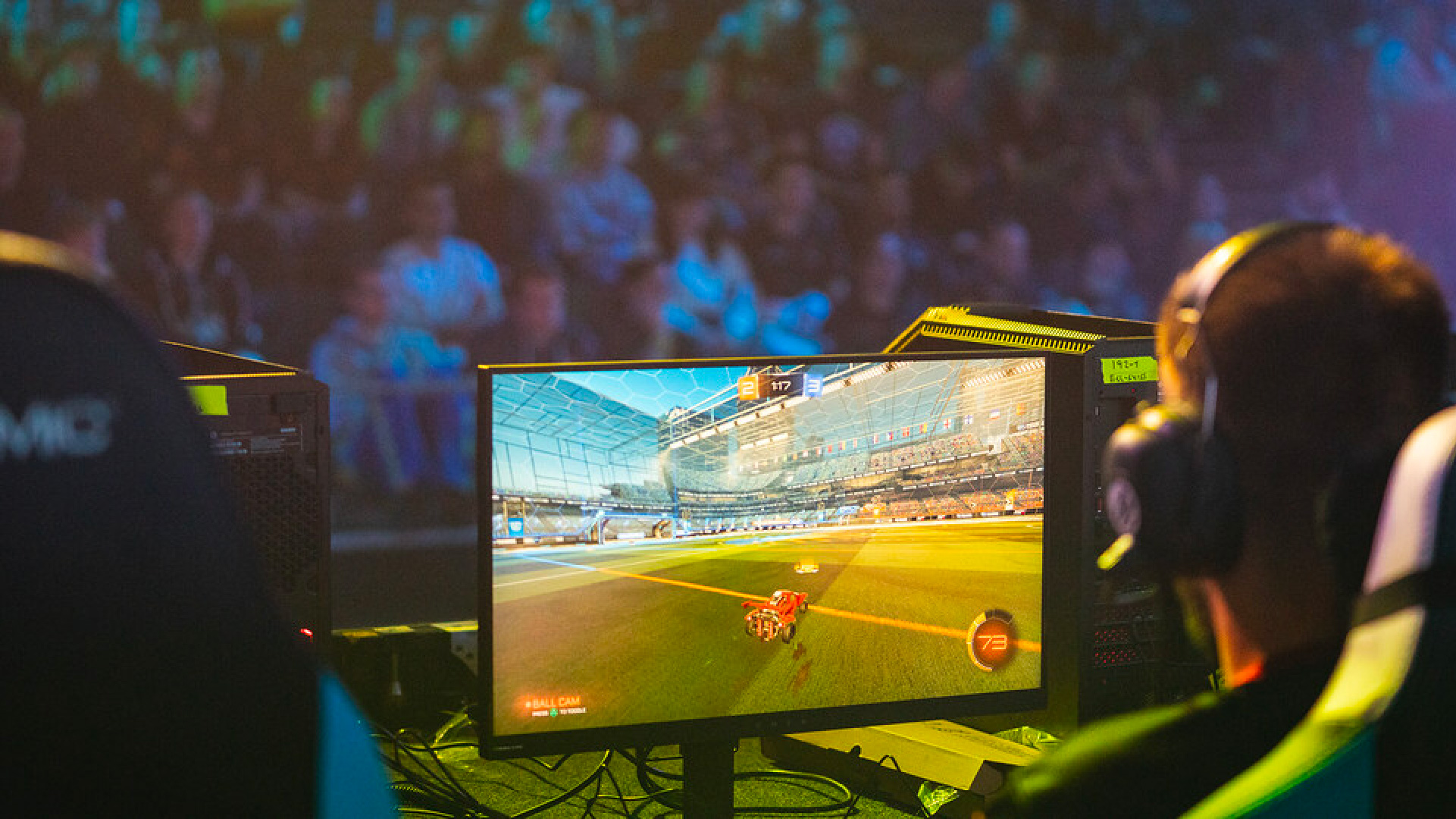The Explosive Rise of Esports and Online Gaming: A Cultural and Economic Phenomenon
In the 21st century, the landscape of entertainment and competition has undergone a radical transformation. Esports, or electronic sports, has emerged from niche online communities to become a global phenomenon, captivating millions of viewers and generating billions of dollars in revenue. This article delves into the captivating world of esports and online gaming, exploring its origins, evolution, key players, economic impact, and its profound cultural influence.
Origins and Evolution: From Arcades to Arenas
The roots of esports can be traced back to the early days of video games. In the 1970s and 1980s, arcades served as communal hubs where players would compete for high scores in games like Pac-Man, Space Invaders, and Donkey Kong. These informal competitions laid the foundation for organized gaming events.
The advent of the internet in the 1990s revolutionized the gaming world. Online multiplayer games such as Doom, Quake, and Starcraft allowed players to compete against each other from anywhere in the world. This led to the formation of online communities, tournaments, and leagues, marking the birth of modern esports.
The 2000s saw the rise of esports as a professional industry. Games like Counter-Strike, Warcraft III, and League of Legends gained massive popularity, attracting sponsorships, media coverage, and professional players. The establishment of esports organizations, professional teams, and structured leagues further solidified the industry’s legitimacy.
Key Esports Titles: A Diverse Gaming Ecosystem
The esports ecosystem is diverse, encompassing a wide range of game genres. Some of the most popular esports titles include:
-
Multiplayer Online Battle Arenas (MOBAs): Games like League of Legends (LoL) and Dota 2 involve two teams of players competing to destroy each other’s base. MOBAs are known for their strategic depth, team coordination, and complex gameplay mechanics.
-
First-Person Shooters (FPS): Games like Counter-Strike: Global Offensive (CS:GO), Valorant, and Overwatch pit teams of players against each other in fast-paced, tactical gunfights. FPS games emphasize aim, reflexes, and teamwork.
-
Battle Royales: Games like Fortnite, PlayerUnknown’s Battlegrounds (PUBG), and Apex Legends involve dozens or even hundreds of players competing to be the last one standing. Battle Royales combine elements of survival, exploration, and combat.
-
Fighting Games: Games like Street Fighter, Tekken, and Mortal Kombat feature one-on-one matches between players controlling iconic characters. Fighting games require precise execution, strategic thinking, and knowledge of character matchups.
-
Sports Games: Games like FIFA, NBA 2K, and Madden NFL simulate real-world sports, allowing players to compete as their favorite teams or athletes. Sports games appeal to both traditional sports fans and gamers.
-
Real Time Strategy (RTS): Games like Starcraft II requires the player to collect resources, build bases and armies and command them to defeat the enemy
The Economics of Esports: A Multi-Billion Dollar Industry
Esports has evolved into a multi-billion dollar industry, driven by revenue streams from various sources:
-
Sponsorships: Brands from various industries, including technology, energy drinks, and automotive, invest heavily in esports sponsorships to reach a young, tech-savvy audience.
-
Advertising: Esports events and online streams generate revenue through advertising, with brands paying to display their ads to viewers.
-
Media Rights: Broadcasting rights for esports tournaments and leagues are sold to television networks and streaming platforms, generating substantial revenue.
-
Ticket Sales: Live esports events attract large crowds, with fans paying to watch their favorite teams and players compete in person.
-
In-Game Purchases: Many esports games generate revenue through the sale of in-game items, such as skins, emotes, and virtual currency.
-
Merchandise: Esports teams and organizations sell merchandise, such as jerseys, hats, and accessories, to their fans.
The Cultural Impact: Esports as a Mainstream Phenomenon
Esports has transcended its niche origins to become a mainstream cultural phenomenon. Its impact is evident in various aspects of society:
-
Growing Viewership: Esports events attract millions of viewers online and in person, rivaling the viewership of traditional sports events.
-
Rising Star Athletes: Professional esports players have become celebrities, with dedicated fan bases, lucrative sponsorships, and media attention.
-
Educational Opportunities: Universities and colleges are offering esports scholarships and degree programs, recognizing the academic and career potential of esports.
-
Community Building: Esports fosters a sense of community among players and fans, providing opportunities for social interaction, collaboration, and shared experiences.
-
Inclusivity and Diversity: Esports has the potential to be more inclusive and diverse than traditional sports, as it is not limited by physical attributes or geographical location.
Challenges and Opportunities
Despite its rapid growth and widespread popularity, esports faces several challenges:
-
Health and Well-being: Professional esports players often face intense pressure, long hours of practice, and potential health risks, such as eye strain, carpal tunnel syndrome, and burnout.
-
Match-Fixing and Cheating: Esports is vulnerable to match-fixing and cheating, which can undermine the integrity of the sport.
-
Lack of Regulation: The esports industry lacks a unified regulatory framework, which can lead to inconsistencies and disputes.
-
Sustainability: The long-term sustainability of esports depends on addressing these challenges and ensuring that the industry is fair, healthy, and well-regulated.
Despite these challenges, esports presents numerous opportunities:
-
Economic Growth: Esports has the potential to drive economic growth, creating jobs, attracting investment, and stimulating innovation.
-
Social Inclusion: Esports can promote social inclusion, providing opportunities for people of all backgrounds to participate and compete.
-
Educational Advancement: Esports can be used as a tool for educational advancement, teaching skills such as teamwork, problem-solving, and strategic thinking.
-
Entertainment and Engagement: Esports provides a unique form of entertainment and engagement, captivating audiences with its thrilling competitions, compelling narratives, and charismatic personalities.
The Future of Esports: Continued Growth and Innovation
The future of esports looks bright, with continued growth and innovation on the horizon. Emerging trends include:
-
Mobile Esports: Mobile gaming is becoming increasingly popular, leading to the rise of mobile esports titles.
-
Virtual Reality (VR) and Augmented Reality (AR): VR and AR technologies have the potential to revolutionize esports, creating immersive and interactive gaming experiences.
-
Cloud Gaming: Cloud gaming services allow players to stream games to any device, expanding access to esports and online gaming.
-
Artificial Intelligence (AI): AI is being used to enhance esports gameplay, provide personalized training, and create more engaging spectator experiences.
Conclusion
Esports and online gaming have transformed the landscape of entertainment and competition, creating a global phenomenon with profound cultural and economic implications. From its humble origins in arcades to its current status as a multi-billion dollar industry, esports has captured the hearts and minds of millions of people around the world. As esports continues to evolve and innovate, it promises to provide even more exciting opportunities for players, fans, and the wider community.

